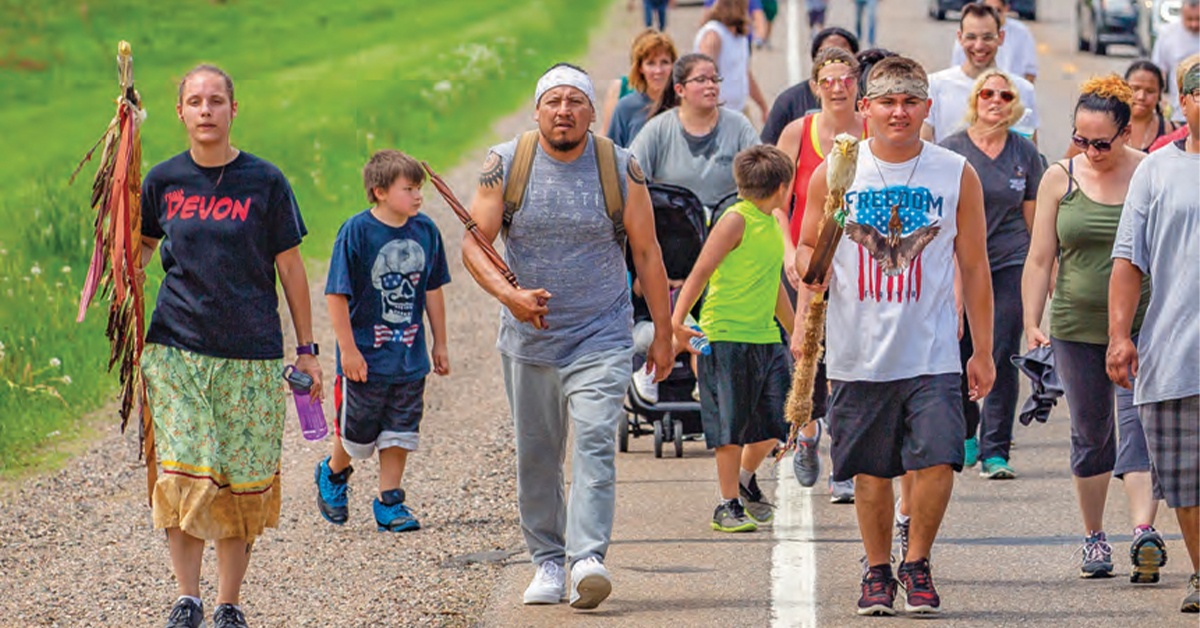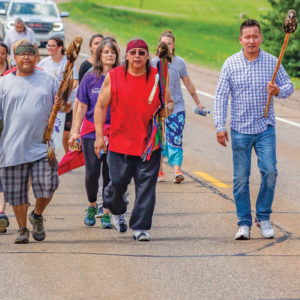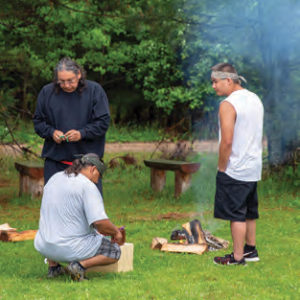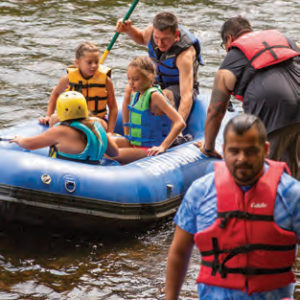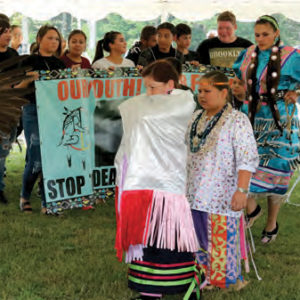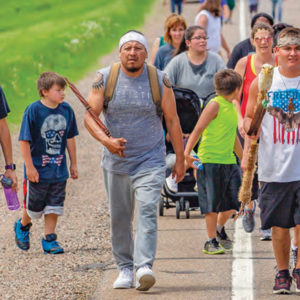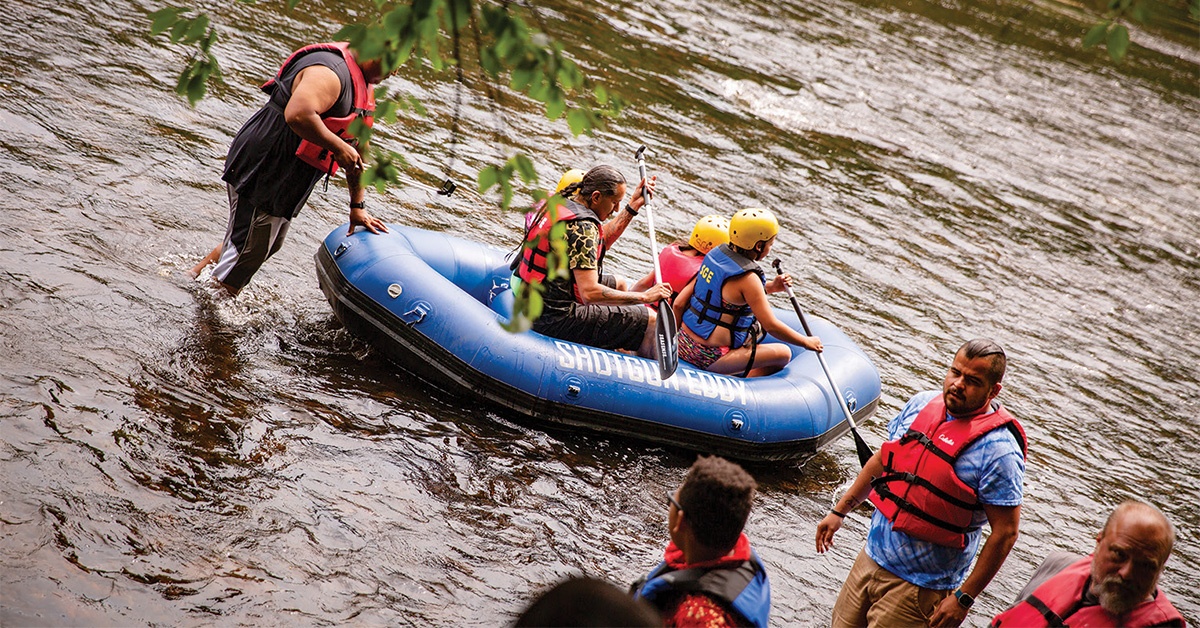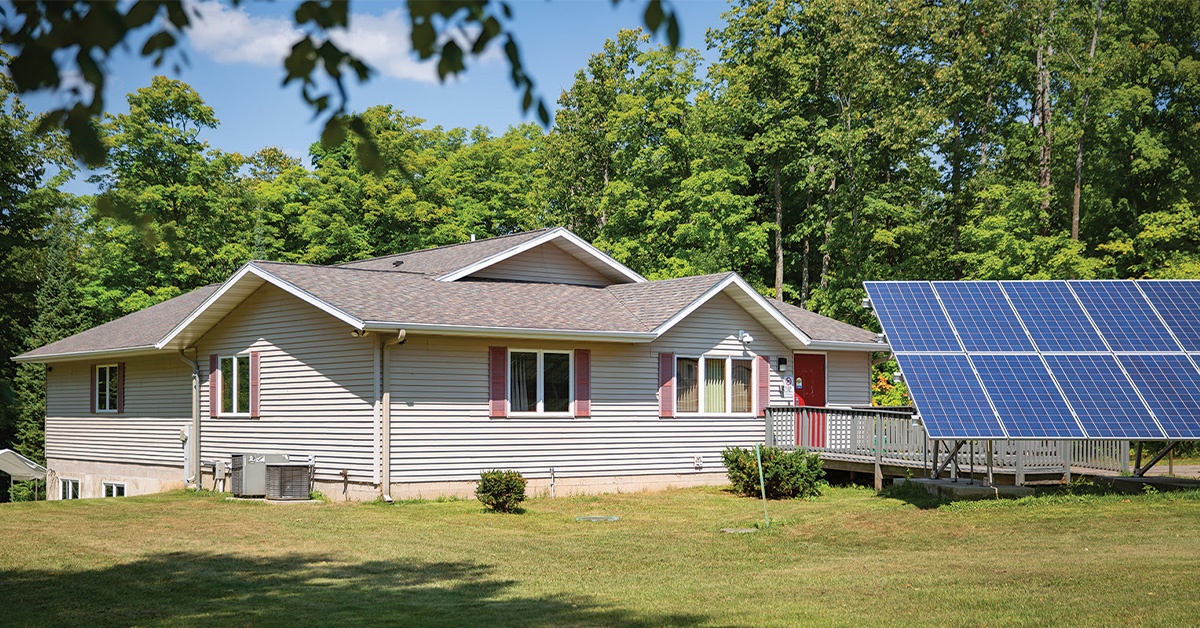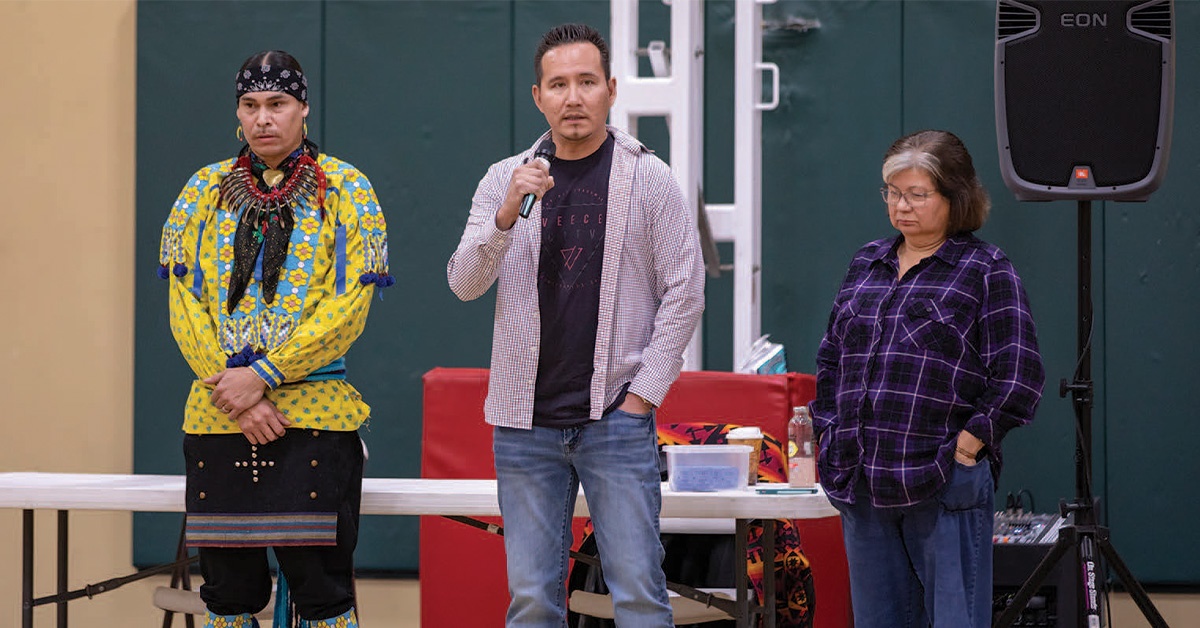The Walk for Recovery
History was made in May 2018 when the Forest County Potawatomi (FCP) and the Sokaogon Chippewa Community joined forces to fight against a crisis facing both communities. The crisis in this case is the abuse of and addiction to opioids. The result of this historic collaboration was the birth of Walk for Recovery, a 10-mile trek from Mole Lake to Stone Lake with more than 40 participants. Those taking part included those from several walks of life: tribal government, AODA counselors, health and wellness advocates, those in recovery, youth and elders – all striving towards the same goal: Bringing awareness to the senseless grief and devastation wreaking havoc in too many families.
FCP Council Member and walk participant Brooks Boyd summed it up quite perfectly when he said, “This walk focused on shedding awareness on the opioid epidemic in our communities. Families are tired of watching their loved ones die before their time. This is occurring far too often and it’s something that can be averted. It’s time to take a stand. That time is now.”
The Walk for Recovery ended with a feast and the lighting of a sacred fire. The hope and energy this group brought forth that day paved the way for what was to come.
For 54 days, the sacred fire in Stone Lake burned. What you might not realize is that a sacred fire must be tended. For this particular fire, it also meant sleeping in a tent and a sleeping bag, and dealing with whatever the weather felt like dishing out. This took dedication and commitment to the cause on the part of many people! But that fire and the reason behind it brought people together through deep, meaningful conversations, and through both laughter and tears. More importantly, it opened an avenue for healing within the community.
In July 2018, a feast was held that served several purposes: to honor those who kept the fire burning for 54 days, to keep opioid epidemic awareness alive in the community, and to instill the need for a positive, working-together mindset into the hearts and minds of those who have within them the power to make a difference.
During this feast, FCP Chairman Ned Daniels Jr. gave a huge shout out to law enforcement from the City of Crandon and Forest County who were present. He thanked them for taking action against those who sell this poison to the people. Daniels went on to speak about drugs being an on- and off-reservation problem that knows no age or color. He made mention of children in the community who are taking part in activities to help others. When speaking of the sorrow brought into the community by drugs, Daniels said, “Migwetch for caring about your people!” He stated that there would be more good things happening in the community, and he spoke the truth.
Another positive offshoot of the walk and the sacred fire was the addition of a youth prevention program to the AODA arsenal: Gdenwémagnenanêk (“all our relatives”). This mentor program is designed to show community youth that they can have a fun and exciting time without the use of drugs or alcohol – substances that do not enhance an experience but rather inhibit true enjoyment and involvement in life activities. This is an essential lesson for young people to learn, and so far, they are having a great time doing it.
Two recent cases in point involving staff and youth: whitewater rafting on the Wolf River and a trip to Commando Paintball in Little Suamico, Wis. Prevention Coach Jorge Cisneros and Prevention Activities Coordinator Ira Frank have stated that there are other trips in the works, possibly an outing to zip-line and a mini carnival.
And just this past October, FCP Executive Council met with the Forest County Intergovernmental Relations Committee, another first-of-its-kind collaboration. The major topic of discussion was the opioid crisis. Chairman Daniels explained the need to be proactive in the fight against drugs. He explained that Forest County is one of two counties that have a drug court – a court designed to curb drug use through treatment, counseling, and lifestyle changes instead of traditional punishment by incarceration. FCP tribal government has its own treatment center, the Health & Wellness Center (HWC), which is a public rehab located in Crandon. The HWC specializes in the treatment of substance abuse and mental health. If a person in drug court agrees to extensive treatment and wants to change their lifestyle but can’t get a job because of their criminal record, the tribe will place them in a job in the Potawatomi community where they will be evaluated and monitored.
FCP Treasurer Joseph Daniels Sr. said that part of the tribe’s proactive approach is to track each member from the “cradle to putting flowers on their grave.” He said they have an effective tracking system that the counties should consider, as it is documentation for funding from the state and federal government for their drug crisis programs.
The county shared the costs and challenges it must face when dealing with this crisis, and its need to decide if it could go solo if the current partnership with another county were to fail. There is talk of FCP providing services such as a treatment center for the county. It should be noted that the FCP community has helped the county recently by providing two drug officers and two patrol cars. They have also purchased a patrol unit for the City of Crandon.
Chairman Daniels stated, “We hope that all our communities can work together to make better lives for our children.”
There may be a walk for 2019 spring. Please watch for announcements on FCPotawatomi.com and Facebook for more details.


